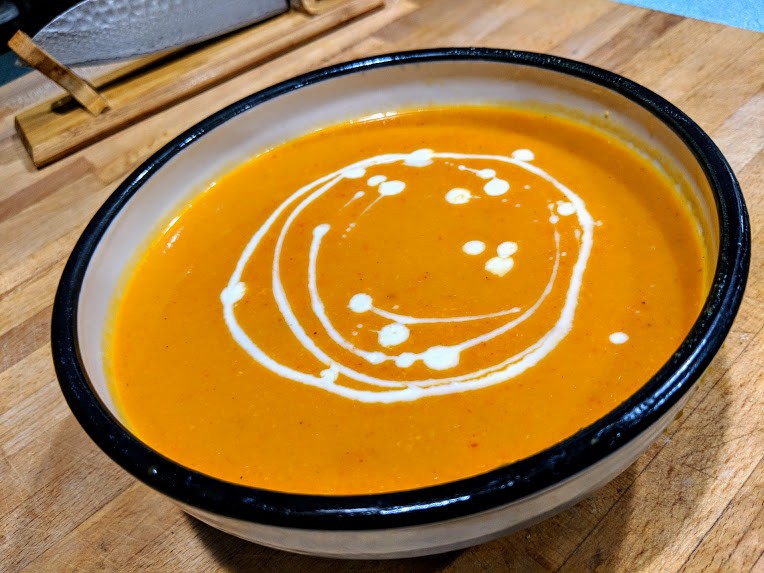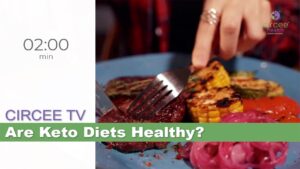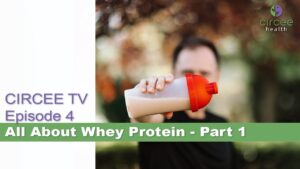It is well-known that plants defend themselves against attacks by producing chemicals that are not so good for the attacker. Most studies have centered around insect infestations. The small amounts produced are either foul smelling or tasting – for the insect. It just so happens that what is bad for the insect is not necessarily bad for humans!
Recent studies have analyzed these chemicals and have found that they have antioxidative properties! In other words, chemicals that help us humans ward off infections, allergies,etc.
So eat those slightly damaged fruits and veggies! They are good for you.
Last night, we found a bunch of veggies that were either bruised, insect eaten or fungus infected (on the edges). We decided to make a Thai-style cauliflower and sweetpotato soup. Here are the ingredients and the end-result.
It is well known that plants defend themselves from their predators by producing certain chemicals. Most studies have centered around insect infestations. The small amounts produced are either foul smelling or tasting – for the insect. It just so happens that what is bad for the insect is not necessarily bad for humans!
Recent studies have analyzed these chemicals (called ‘lectins’) and have found that they actually have antioxidant properties! In other words, they help us humans ward off infections, allergies, and even cancers!
So eat those slightly damaged fruits and veggies! They are good for you.
Last night, we found a bunch of veggies sitting around in our cupboards, that were either bruised, insect eaten, or fungus infected (on the edges). We decided to make a Thai-style cauliflower and sweet potato soup. Here are the ingredients, and the (delicious!) end-result.


For the full recipe, please visit or www.laikassa.com/thai-style-cauliflower-sweetpotato-soup.
By the way, plants rich in lectins include, tomatoes, potatoes, beans, carrots, zucchini, peas soybeans, mung beans and other lentils (daals).
Science Says
An important defense mechanism in plants against insect the attack is through the production of lectins. These are a class of entomotoxic proteins that bind to carbohydrates. Many of the plants we consume as herbivores are high in lectins. These lectins are in some cases, toxic to most carnivorous animals, but not to humans (with certain rare exceptions).







